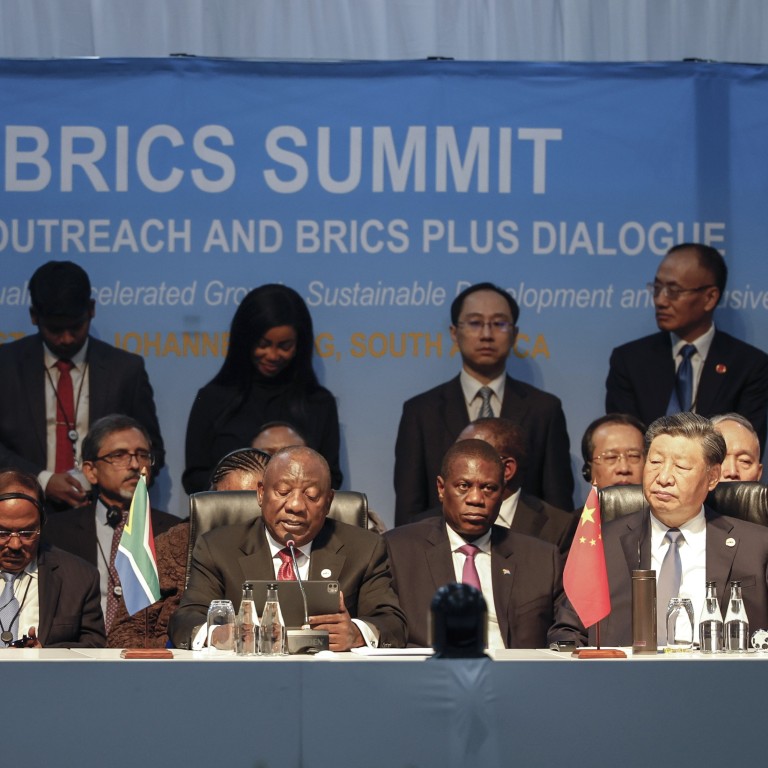
Anxiety, not ambition, behind rise of the Global South against US-led world order
- Historical and postcolonial grievances play a part but a greater driver is the worry caused by US behaviour – from the weaponisation of sanctions to the undermining of the WTO
The world is at a pivotal moment as the unipolar international order under US hegemony shows signs of giving way to an evolving multilateralism.
This has sparked debate over the reasons behind this shift. Many experts point to the long history of colonial exploitation by the West and accumulated grievances over the decades as adhesive forces behind the rise in the unity of the Global South.
Consider the unilateral application of sanctions by Washington. Many nations are today subject to US economic sanctions, with a large majority being developing nations – essentially those in the Global South. A US Treasury Department report from October 2021 revealed a staggering 933 per cent increase in the use of sanctions by Washington over the past 20 years. This has no doubt jumped further with the Ukraine war.
The International Crisis Group warns that US economic sanctions can sometimes “inhibit peace processes and post-conflict recovery, constrain peace organisations, undercut negotiations and entrench divisions between conflict parties”.
Aside from such US economic coercion, there are other sources of resentment against the West in the Global South.
The sources of such anxiety also make for a long list. But one prominent example should suffice to make the case: the dismantling of the World Trade Organization’s ability to settle trade disputes.
US remains key to saving the World Trade Organization, but will it?
Despite overwhelming support from other WTO members to launch the selection process for new Appellate Body members, the US has rejected proposals 60 times in a row as of last December. This behaviour shows a disregard for the opinions of other WTO members and for the importance of resolving disputes within the organisation.
Further, to the dismay of developing countries, the US has reportedly submitted nine proposals to the WTO General Council since 2019 to remove special and differential treatment for specific developing countries.
As the Sino-US rivalry intensifies and Washington continues its relentless efforts to hobble China’s technological and economic advancement, developing countries have more reason to be anxious. With growing protectionism, and amid the hail of trade and tech wars, the risk of collateral damage is rising. And, ultimately, the countries across the Global South know they will be the ones most severely affected.
Hafijur Rahman is an independent researcher and freelance journalist with expertise in Sino-US relations, the Middle East and Asia-Pacific affairs. He holds bachelor and master’s degrees in social sciences from the Department of International Relations, Jahangirnagar University, Dhaka, Bangladesh


